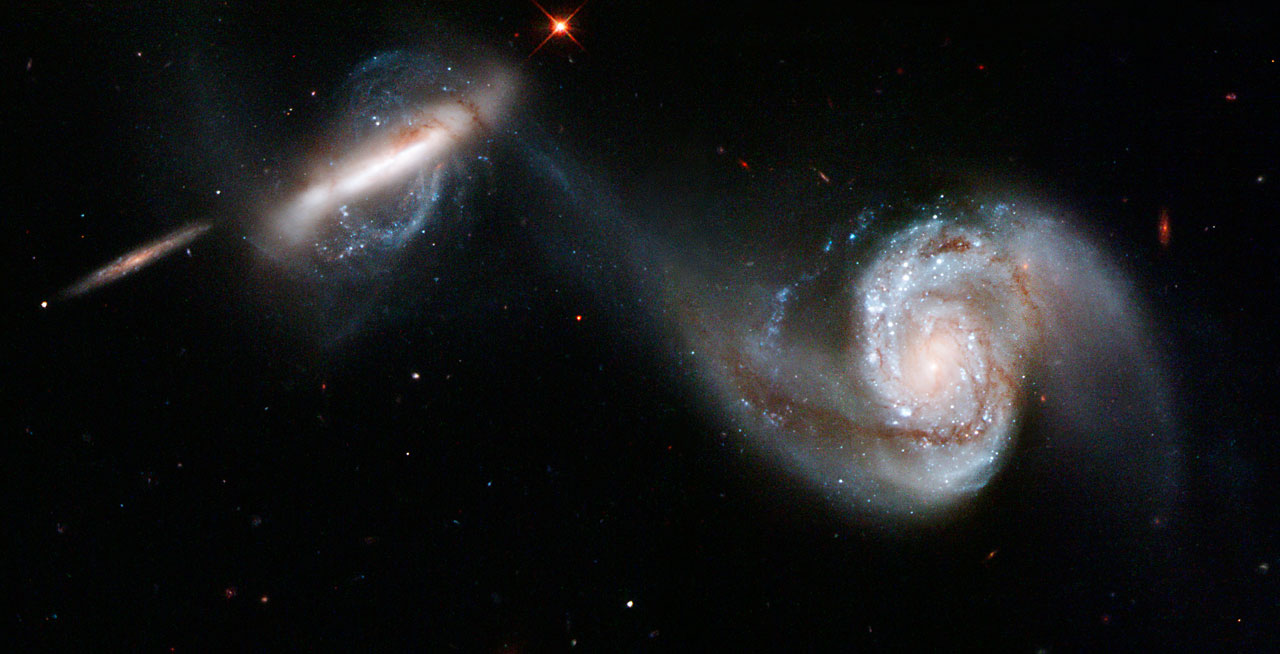Chinese scientists studied the dwarf galaxy VCC322, which was recently formed as a result of the merger of two smaller ones. They found out how this process affected star formation in it.

Merger of dwarf galaxies
Using data from the Next Generation Virgo Cluster Survey project, Zhang Lanyue of the Yunnan Observatory of the Chinese Academy of Sciences and her collaborators analyzed the tidal tails of the dwarf galaxy VCC322, which were formed as a result of two smaller systems. The study is published in The Astrophysical Journal.
In this study, scientists want to know how mergers of dwarf galaxies like the Magellanic Clouds affect the processes of star formation inside them. The theoretical impact of such events should be stronger than in the interaction of large systems like the Milky Way and the Andromeda Nebula.
However, it is important to observe such small galaxies. Therefore, until now it was not known exactly what was really going on there. It is known that the result of such interaction is the formation of tails of stars and gas that stretch for tens of thousands of light years.
What the study showed
It is precisely such “tails” in the VCC322 galaxy that scientists have studied. They require a solution to their chemical composition and the windows that make up their composition. As a result, it was concluded that there was indeed a starburst in this star system.
In addition, they examined the neighboring dwarf galaxy VCC319 and concluded that it had also recently undergone a merger. At the same time, although signs of a starburst were found, it turned out to be much weaker when compared with other similar cases in the Virgo cluster.
An explanation for this phenomenon was also found in the observational data. The merger that took place some time ago generated strong shock waves. They heated up the interstellar gas and this greatly slowed down the formation of new stars.
According to phys.org


